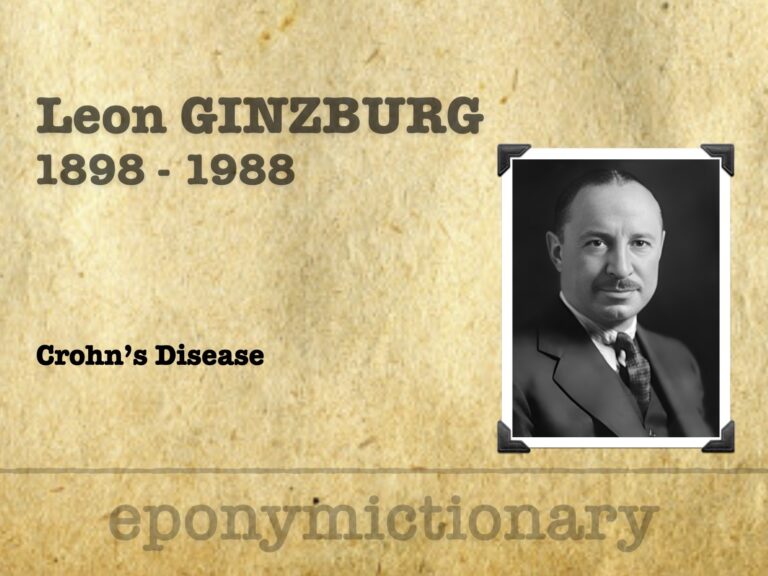
Leon Ginzburg
Leon Ginzburg (1898–1988), American surgeon Mount Sinai and Beth Israel; co-describer of regional ileitis (Crohn’s disease).

Leon Ginzburg (1898–1988), American surgeon Mount Sinai and Beth Israel; co-describer of regional ileitis (Crohn’s disease).
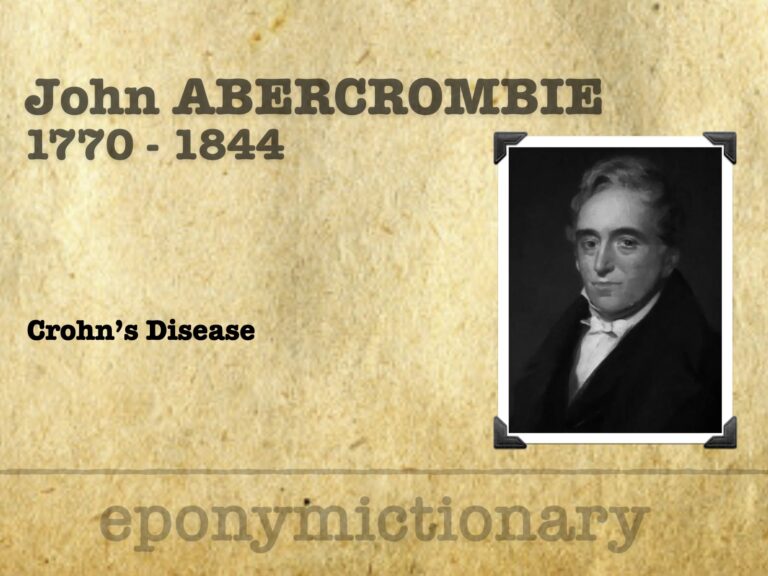
John Abercrombie (1780–1844), Scottish physician, pioneered neuropathology and GI research, and described early cases resembling Crohn’s disease in 1828
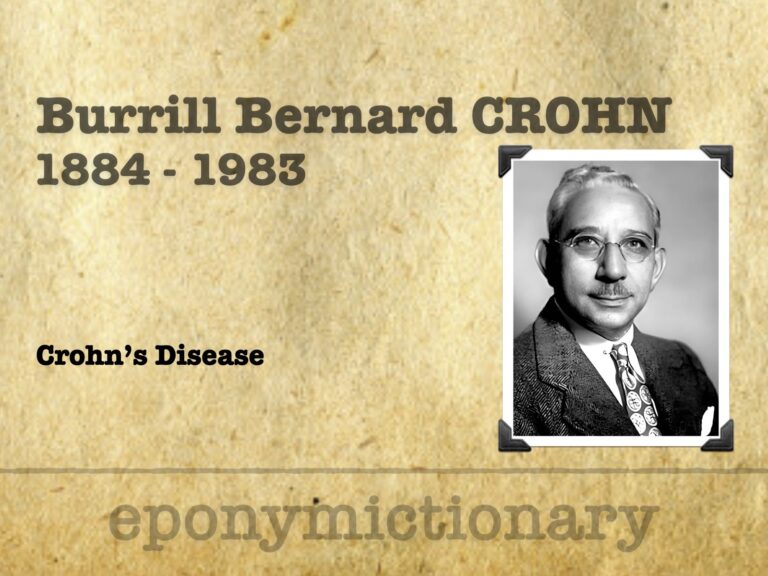
Burrill B. Crohn (1884–1983), pioneering gastroenterologist and namesake of Crohn’s disease. Discover his life, work, and medical legacy
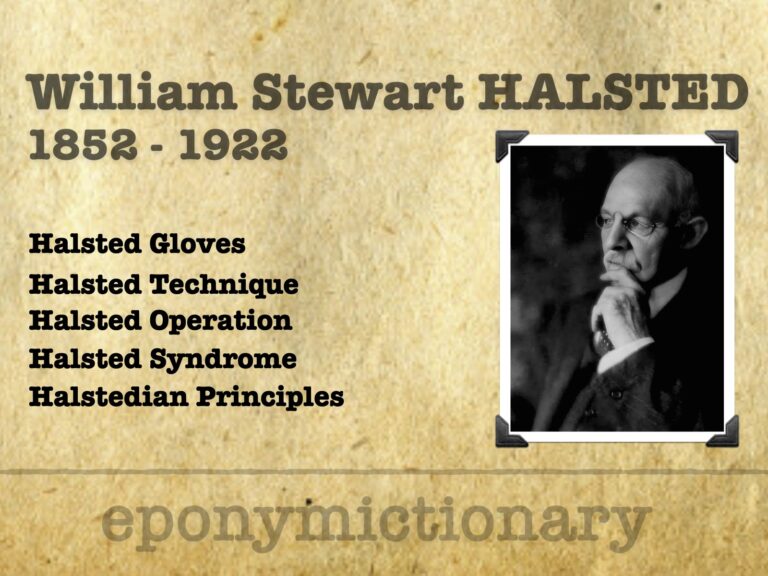
William Halsted (1852–1922), pioneering American surgeon, revolutionized surgery with aseptic technique, anesthesia, gloves, and the residency training model.
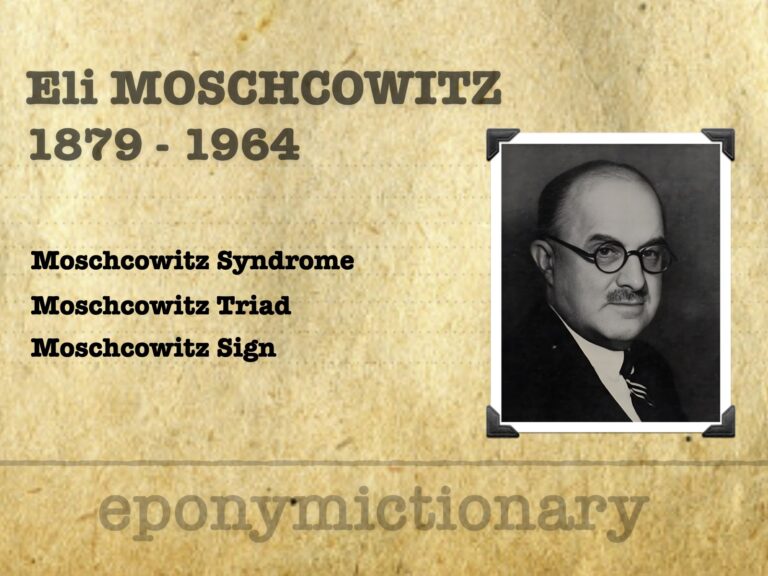
Eli Moschcowitz (1879–1964), pathologist who first described TTP and pioneered early psychosomatic medicine, influencing the biopsychosocial model.
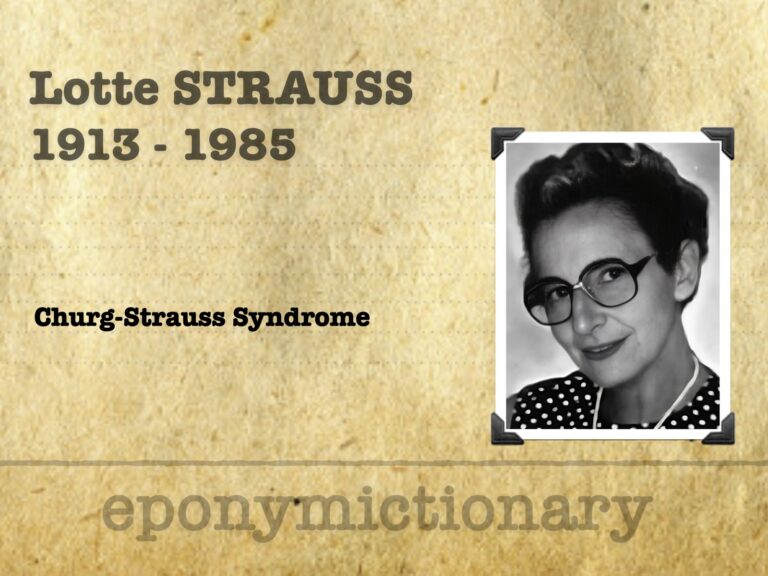
Lotte Strauss (1913–1985), pioneer in paediatric and perinatal pathology, co-described Churg–Strauss syndrome and helped found the Society for Pediatric Pathology
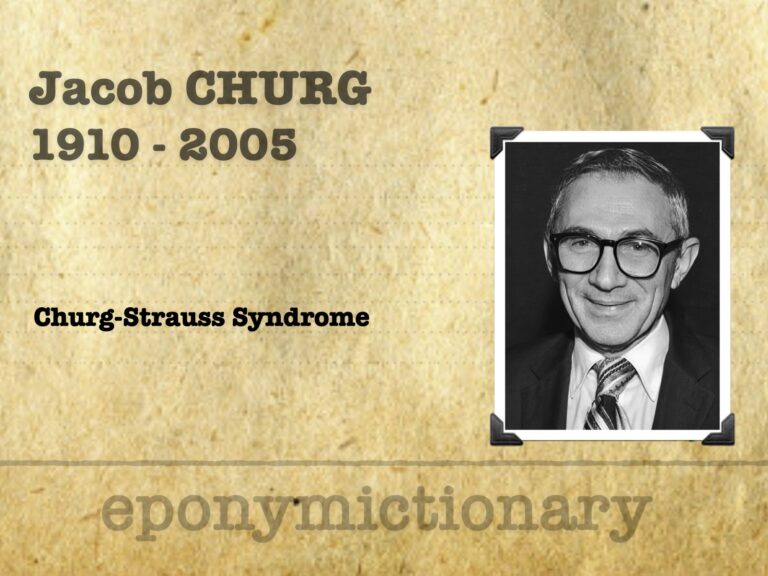
Jacob Churg (1910–2005), pioneering pathologist, co-described Churg–Strauss syndrome and transformed renal pathology through biopsy-based diagnostics

Robert Alvin Berman (1914-1999) was an American anesthesiologist and inventor including the Berman Airway, Quick Cuff and Respir-Aider
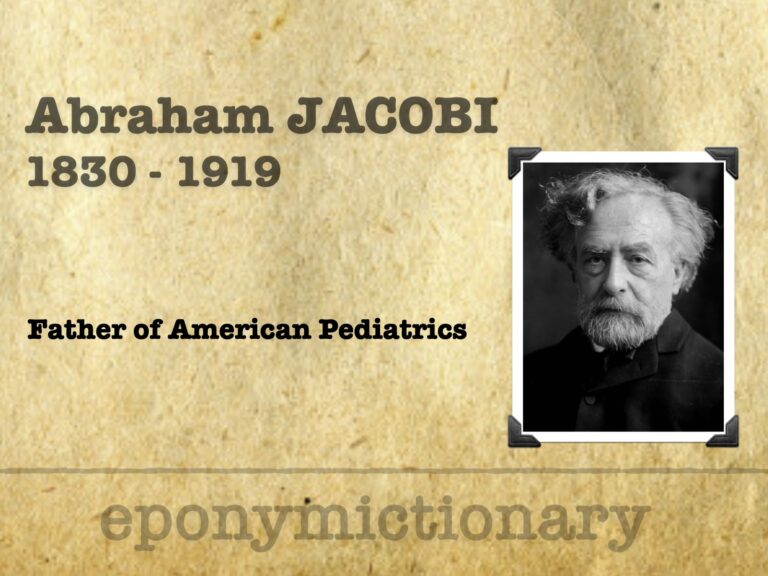
German-born American pediatrician Abraham Jacobi (1830–1919) founded U.S. pediatrics, led reform in child health, and shaped medical education and policy.
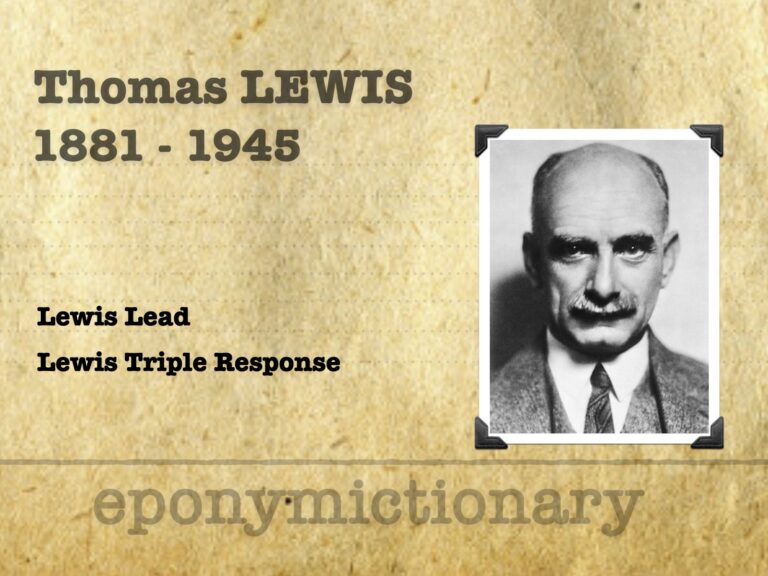
Pioneer of clinical cardiac electrophysiology, Sir Thomas Lewis (1881–1945) advanced ECG use, defined effort syndrome, and discovered the Lewis Triple Response.
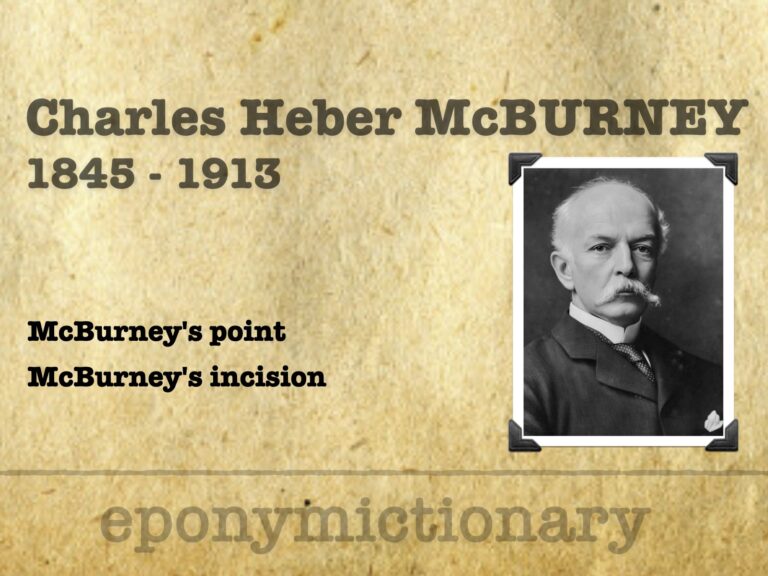
Charles Heber McBurney (1845 – 1913) was an American surgeon. Most famous for McBurney's point (1889) and McBurney's incision (1894) Medical Eponym.
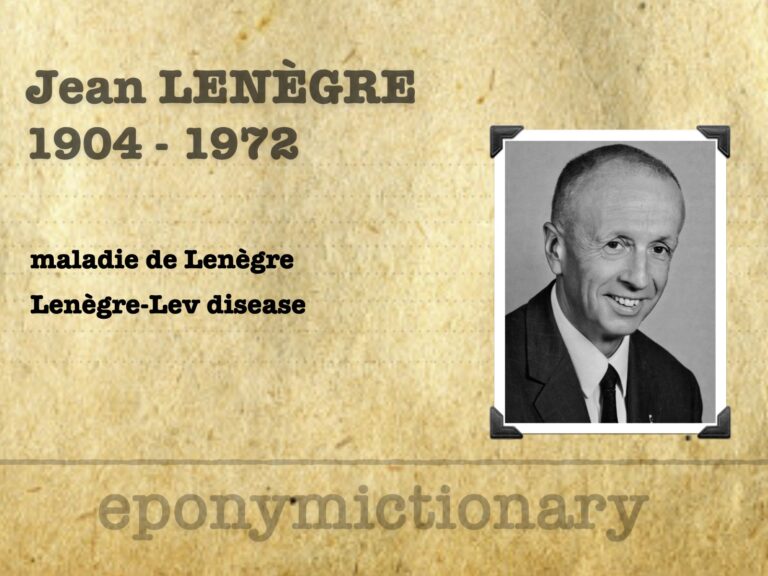
Jean Lenègre (1904–1972), French cardiologist, defined Lenègre’s disease and pioneered cardiac electrophysiology, catheterization, and bundle branch pathology